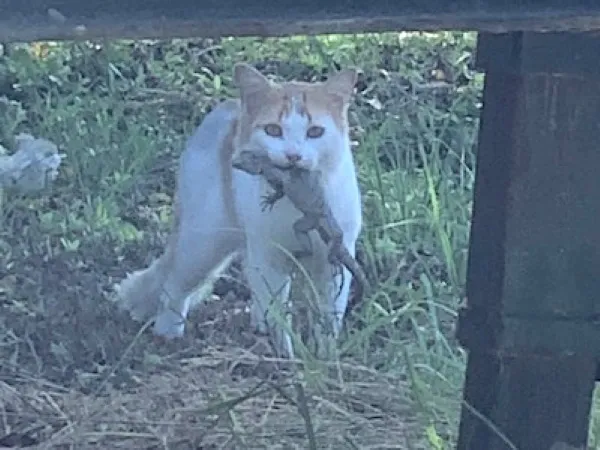By Cayman News
Copyright caymannewsservice

(CNS): Following a successful feral cat control programme in the Sister Islands, the National Conservation Council is planning to extend it into environmentally sensitive areas on Grand Cayman. The NCC will be meeting this week to vote on a proposal to use more humane procedures for culling the animals and to focus on all protected areas under the National Conservation Act, as well as the Botanic Park, Salina and Colliers reserves and other National Trust lands.
The control programme on Cayman Brac removed feral cats from the primary brown booby nesting area, which resulted in a significant and encouraging recovery in fledging rates. In addition, there has been a striking reversal of years of population decline in the rock iguanas and an upsurge in hatchling survival rates on Little Cayman.
The control of feral cats, particularly in environmentally sensitive areas, such as nesting sites and in protected areas, is an ongoing high priority for the Department of Environment, according to documents published with the upcoming meeting agenda.
The DoE plans to continue the work towards a potential full eradication of feral cats from Little Cayman using more humane and effective techniques in protected lands and other environmentally sensitive areas in ways that avoid risks to native species.
The DoE has also noted a need for improved access to veterinary and other support services to facilitateresponsible pet ownership to address the root causes of some feral species, thereby reducing the need for these animal controls, which have not been without controversy.
To date, the project has avoided targeting or even accidentally trapping pets or companion cats by getting owners to register and chip their animals. The DoE will once again visit all homes within a half kilometer radius of any proposed control area to establish if there are any domestic companion cats there.
Owners will be asked to register them with the DoE under a voluntary arrangement, whereby the cat is photographed, the owner’s contact details taken, and microchip identification of the cat recorded. In registrations where any of these cats is not microchipped the owner will be encouraged to arrange for that to be done, and to place a collar on the cat so it can be readily identified.
Any pet trapped in the programme that is registered and chipped will be returned to their owners. But there is a clear need to control feral cats, which represent a significant threat to some of Cayman’s most iconic indigenous species, such as the blue iguana as well as local snakes, frogs, lizards and birds, whose lives are short and extremely challenging.
Without proper care the animals are vulnerable to various illnesses, disease, deformities and parasites as well as traffic, and while they may be killing endangered species, they are usually malnourished.
Around the world feral cats are responsible for at least 14% of global bird, mammal and reptile extinctions and are the principle threat to almost 8% of critically endangered birds, mammals and reptiles.



